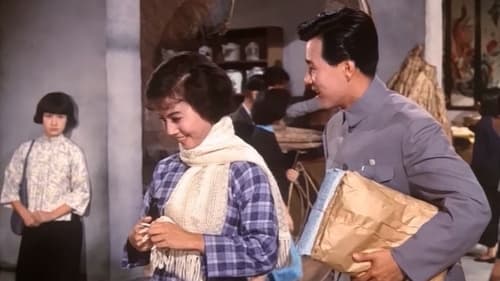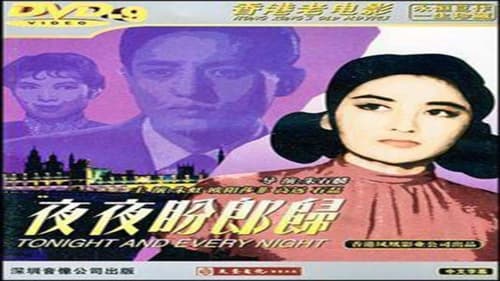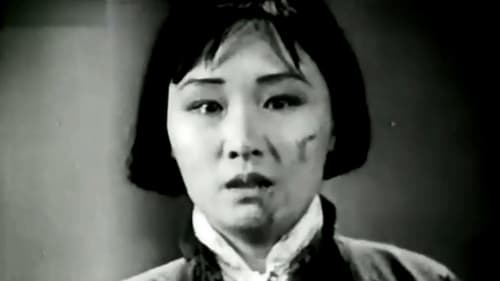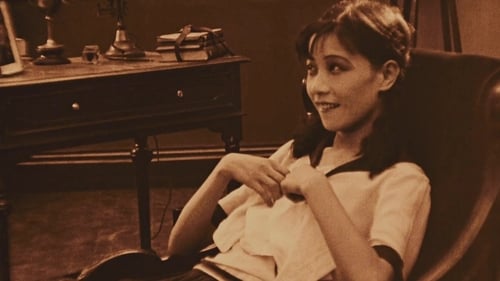Zhu Shilin
Birth : 1899-08-30, Jiangsu, Cina
Death : 1967-01-05

Writer
Yang Mengchi is a spoiled, rich do-nothing whose habit of smoking opium has cost him his entire fortune and the family mansion, the Garden of Repose, now due to be sold to Yao Guodong. Fearing that Yao's spoiled and unruly son Siaofu will follow in Yang's footsteps, Yao's stepwife Wan Zhaohua tries to instil discipline in the child but her efforts are undermined by the child's indulging and protective father and grandmother. Unable to reform himself despite his own son's chastisement, Yang leaves home to lead a reclusive life in a destitute temple, only helped out by his filial daughter Han'er. The poverty-stricken Yang is drafted into the army and tragedy ensues.

Director
Yang Mengchi is a spoiled, rich do-nothing whose habit of smoking opium has cost him his entire fortune and the family mansion, the Garden of Repose, now due to be sold to Yao Guodong. Fearing that Yao's spoiled and unruly son Siaofu will follow in Yang's footsteps, Yao's stepwife Wan Zhaohua tries to instil discipline in the child but her efforts are undermined by the child's indulging and protective father and grandmother. Unable to reform himself despite his own son's chastisement, Yang leaves home to lead a reclusive life in a destitute temple, only helped out by his filial daughter Han'er. The poverty-stricken Yang is drafted into the army and tragedy ensues.

Writer

Director

Writer
Tragedy strikes two pairs of lovers and a family, just three days after a happy marriage.

Director
Tragedy strikes two pairs of lovers and a family, just three days after a happy marriage.

Director

Director
Zhang Mingyang and Ding Huilan are newlyweds and very much in love. Yang's old lover, Wang Baozhu, pays a surprise visit and asks Yang to help her find her long-lost husband. In order to avoid the same mistake of his father-in-law being pestered by his jealous mother-in-law, Yang has to claim that Zhu is the mistress of his colleague, which causes the wives to be suspicious. After Lan learns the truth, she helps Zhu find her husband and exposes Yang's lies ......

Writer
Orphan He Yongnian was brought up by Zheng Mu, the owner of a small shop, and he was childhood sweetheart with Zheng's daughter Jingqin. Yongnian and Jingqin's love roots have been planted early, Jingqin helps everywhere, and Yongnian is very grateful. After Yongnian graduated, he was appreciated by the boss of the trading company, Leung. Jingqin's mother and daughter supported him. Boss Leung's daughter Dai Ni is attracted by Yong Nian and starts pursuing him. Yongnian's heart is attached to Jingqin, but he is afraid of offending Dai Ni, so he reluctantly entertains. Seduced by Dai Ni, Yongnian gradually yearns for a higher life, ignoring Zheng's mother and daughter...

Director
Orphan He Yongnian was brought up by Zheng Mu, the owner of a small shop, and he was childhood sweetheart with Zheng's daughter Jingqin. Yongnian and Jingqin's love roots have been planted early, Jingqin helps everywhere, and Yongnian is very grateful. After Yongnian graduated, he was appreciated by the boss of the trading company, Leung. Jingqin's mother and daughter supported him. Boss Leung's daughter Dai Ni is attracted by Yong Nian and starts pursuing him. Yongnian's heart is attached to Jingqin, but he is afraid of offending Dai Ni, so he reluctantly entertains. Seduced by Dai Ni, Yongnian gradually yearns for a higher life, ignoring Zheng's mother and daughter...

Director
Famed director Zhu Shilin tries his hand at a horror film! The beginning of The Living Corpse immediately sets the tone with a folk duet clearly inspired by the popular 1956 musical Songs of the Peach Blossom River. The duet, in addition to Zhu's frequent use of long, empty shots and crisp editing, gives this horror film a traditional poetic charm and a strong folk flavor. Mise-en-scene and sound effects create a terrifying atmosphere, and successfully communicate the ghostliness of a world without ghosts.

Director
After her husband's death in a car accident, Fang must endure the fury of her mother-in-law.

Director
A financially struggling office worker goes into debt in order to afford traditional holiday gifts for his boss and landlord. Part of Hong Kong Film Awards' 100 Best Chinese Movies.

Director
A 50's Chinese film that reflects the post-war society, expresses idealism and pleads to return to the homeland.

Director
A wedding musician fails to wed his own love: Little Trumpet is raring to marry his childhood sweetheart, but a series of setbacks has prevented them from getting their way. Criticism against social formalities becomes all the more forceful with the clever use of contrast and irony, not to mention the realist and comedic touch a la Zhu Shilin. Of special mention is the famous teahouse scene where dynamic, melodic camerawork creates a hilarity that continues to amaze to this day. A genuine masterpiece with every single detail, down to the minor props, forming an integral part of a whole. Today, young couples are struggling nonetheless to get a roof over their heads, a testimony to the fact that poverty still reigns beneath the facade of harmony and stability after all these years.

Director
A Chinese drama

Director
The film focused on a conflict between Empress Dowager Cixi, her son Guangxi (the nominal emperor) and his wife, Zhenfei.

Screenplay
The Goddess (1934) is remade once again. In this version, Zhu Shilin tackles the anxiety concerning the clash of 20th century Chinese traditions and modern Western culture. Despite her father’s strict discipline, Fun still manages to have a boyfriend secretly and give birth to twins. After leaving her son to her father, she takes off with her daughter. Twenty years later, Fun has become a streetwalker. The three generations finally come face-to-face at the police station. Her father laments that his generation should be ousted while Fun’s generation has been sacrificed, leaving the future for the next generation to establish. Zhu carefully depicts the shame of selling one’s body without passing judgment while he finds balance and reflects on the pain in the age of progress. Even though the production was far from lavish, Zhu’s astute handling of the narrative and mise-en-scène makes this a vivid and exciting film to watch.

Director
The Goddess (1934) is remade once again. In this version, Zhu Shilin tackles the anxiety concerning the clash of 20th century Chinese traditions and modern Western culture. Despite her father’s strict discipline, Fun still manages to have a boyfriend secretly and give birth to twins. After leaving her son to her father, she takes off with her daughter. Twenty years later, Fun has become a streetwalker. The three generations finally come face-to-face at the police station. Her father laments that his generation should be ousted while Fun’s generation has been sacrificed, leaving the future for the next generation to establish. Zhu carefully depicts the shame of selling one’s body without passing judgment while he finds balance and reflects on the pain in the age of progress. Even though the production was far from lavish, Zhu’s astute handling of the narrative and mise-en-scène makes this a vivid and exciting film to watch.

Screenplay
A love triangle between a wrongfully accused fugitive, a judge's daughter, and her cousin.

Director

Director
This movie is a pre-revolutionary era cultural introspection work that was way too ahead of its time, and consequently, performed poorly in the box office. The movie challenged the tow thousand years long traditional rigid Confucian teachings about husbands and wives by introducing the idea of gender equality in a very subtle way.

Director
The life and story of Lin Zexu and the First Opium War.

Director

Director

Director

Director

Director
The film tells the story of Bai Xiongmin's maid, Mei Xiang, who was raped by Bai Xiongmin's father, Bai Jiankang, and who was forced to become a prostitute after the war broke out.

Writer
Three stories about art stages. "Film City", "Drama Group" and "Dance Class".

Director
Three stories about art stages. "Film City", "Drama Group" and "Dance Class".

Director
"Lianhua Symphony" - a small collection, consisting of eight short films shot in 1937 by young filmmakers Shanghai Lianhua Film Company. Part 1: Two Yuans (兩毛錢) directed by Situ Huimin / Part 2: Nightmares in Spring Chamber (春閨斷夢) directed by Fei Mu / Part 3: The Stranger (陌生人) directed by Tan Youliu / Part 4: Three Friends (三人行) directed by Shen Fu / Part 5: Landscape Under the Moonlight (月下小景) directed by He Mengfu / Part 6: The Ghost (鬼) directed by Zhu Shilin / Part 7: Rhapsody of a Madman (瘋人狂想曲) directed by Sun Yu / Part 8: Five Little Brothers (小五義) directed by Cai Chusheng

Director
A Chinese film

Writer

Director
In 1930, two sisters from the countryside, the serious Zhang Lan (Ruan Lingyu) and the frivolous Zhang Tao graduate from the secondary school where their mother Zhang Jie serves as principal. They both love their cousin Zuo, but have ambitions other than marriage. Their lives change dramatically when both attend university in Shanghai and encounter modern urban life and rapidly changing society. The film also depicts the emergence of Chiang Kai-shek's 1934 New Life Movement. Lianhua Film Studio did the film to appease the Nationalist Party which accused it of primarily presenting left-wing films, which was true.

Writer
This is a silent film from China made in 1931. It is about two leads in a film, Yan (Raymond King) and Ying (Violet Wong). They meet after hearing Ying sing while another movie is being shot. You, of course, don't get to hear the song, but it catches people's attention. Once they meet and work together, they fall in love. Is it forever?

Writer
The film tells the story of Yang Naifan (Ruan Lingyu) who runs from her arranged marriage to be with her true love, Li Zuyi (Jin Yan). The film details the poverty she must endure for breaking with tradition.

Director

Director
Two couple doubt their partners are having affairs with another, so they try their best to find out the truth.

Director

Director



















